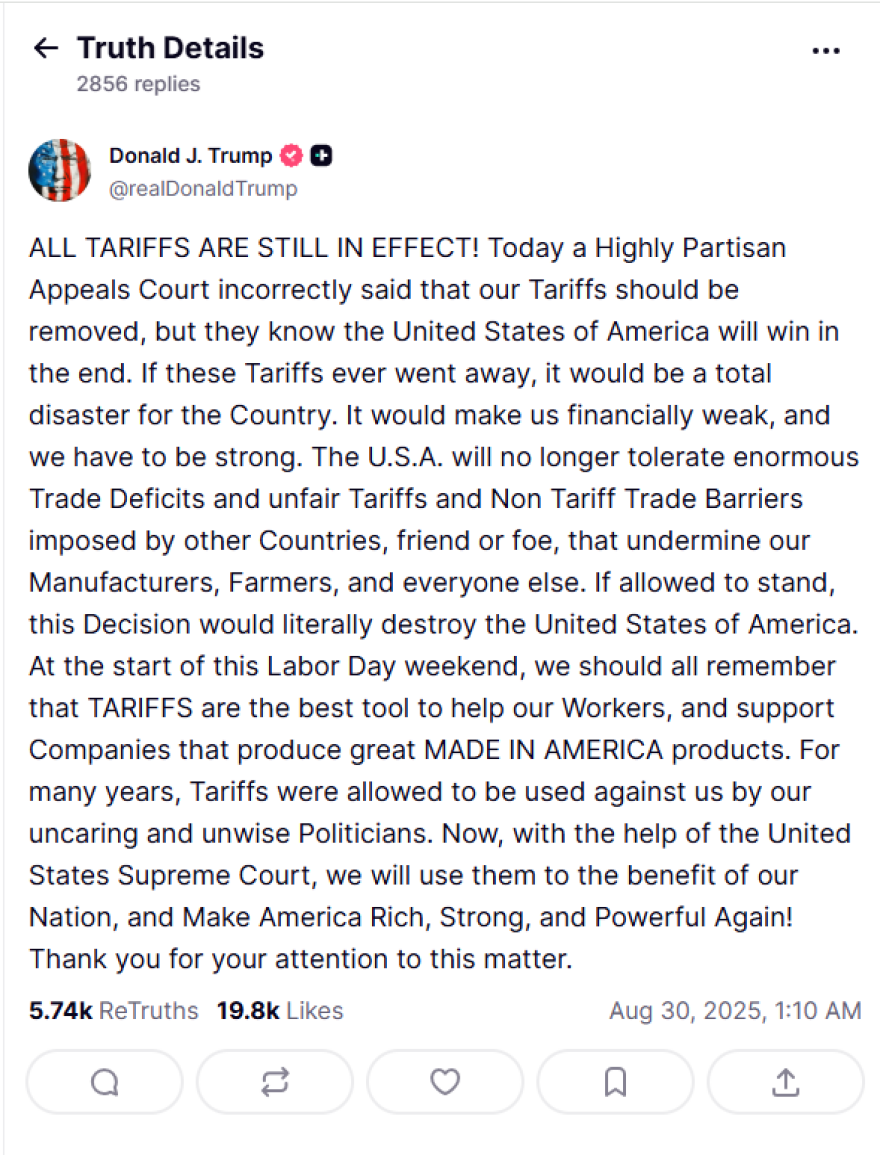U.S. President Donald Trump reacted angrily to a federal appeals court ruling that ruled many of his administration's tariffs illegal, warning that without them "America would be destroyed." Trump, who appeared determined to continue his trade war, announced that he would appeal to the Supreme Court, defending the protectionist policy he implemented during his first term.
Donald Trump has responded angrily to a federal appeals court ruling that ruled many of the tariffs he imposed illegal, arguing that without them "America would be destroyed." The U.S. president appeared determined to continue his trade war, announcing an appeal to the Supreme Court.
The Court of Appeals for the Federal Circuit, by a vote of 7 to 4, ruled that Trump's invocation of the International Economic Emergency Powers Act (IEEPA) to impose extensive tariffs had no legal basis. According to the verdict, Congress had never granted the president "unlimited power" to tax imports.
Despite the ruling, the justices postponed its implementation until mid-October, giving the White House the necessary time to appeal to the Supreme Court. At the centre are tariffs ranging from China to the European Union, as well as countries such as Canada and Mexico.
Trump, who has backed much of his trade strategy on tariffs, called the decision "wrong" and "partisan." "If these tariffs are lifted, it will be a total disaster for the country," he wrote in a post, reiterating that the tariffs would "make America rich again."

The case is of great importance, as the tariffs have been a central lever of pressure on Washington in trade negotiations, generating billions of dollars in revenue. The government had warned the court that any curtailment of the president's power could cause "economic chaos" and undermine agreements made with international partners.
Even in the event of a definitive defeat in the Supreme Court, Trump will still have tools to impose tariffs through other provisions, such as Section 232 (for national security reasons), Section 122 (tariffs of up to 15% for a limited period), and Section 301 (responding to unfair trade practices
The appeals court's decision, however, is seen as a landmark one, as it brings back to the forefront the constitutional question of Congress's competence to determine trade policy. Jake Colvin, chairman of the National Foreign Trade Council, called it a "wake-up call" to Congress to regain its institutional role in regulating tariffs.
